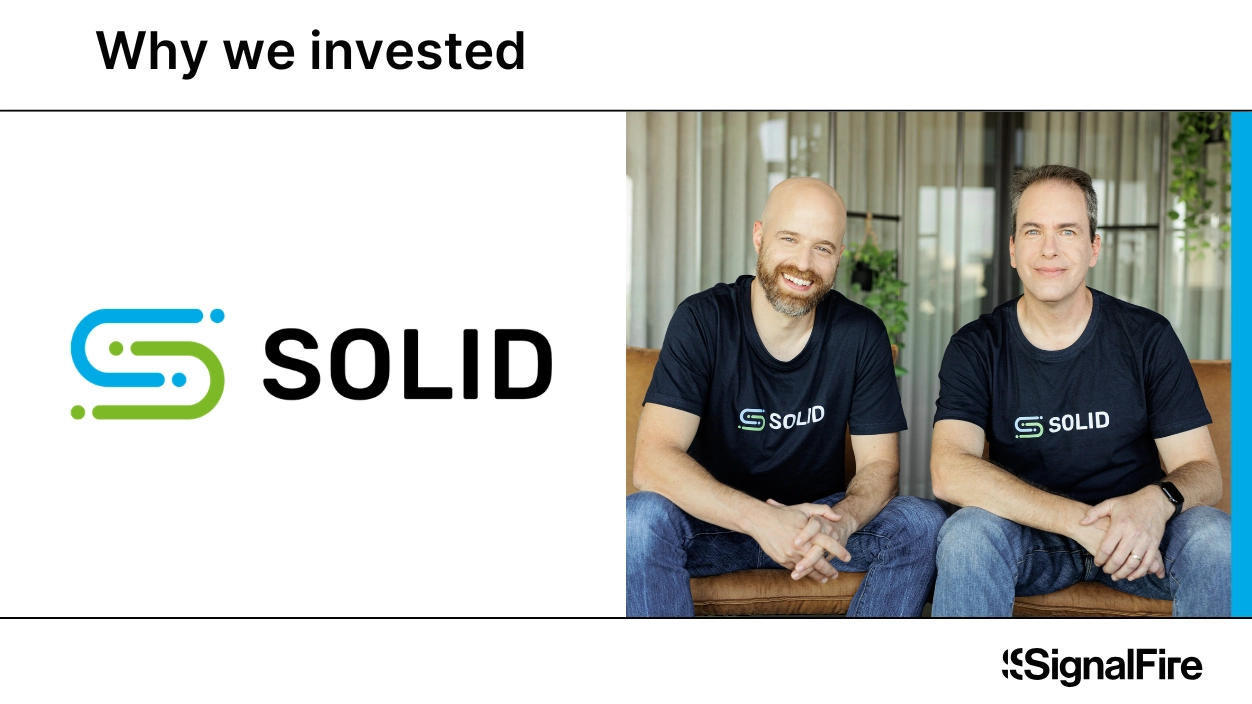
Why OSS deployment is broken, and SignalFire is funding Plural to fix it
Consuming OSS today is truly painful. Outdated OSS is the norm in the industry. As per OSSRA “85% of the codebases contained open source dependencies that were more than four years out-of-date. Unlike abandoned projects, these outdated open source components have active developer communities that publish updates and security patches. But these patches are not being applied by their downstream commercial consumers.”
 |
Plural is changing the narrative by empowering developers of OSS and the DevOps teams consuming it. Plural provides a single, seamless experience to manage all your open source applications. No more toggling between 30 different vendors and dozens of different management tools that hardly integrate with each other. Plural’s mission is to deliver a great developer experience for consuming OSS software, while rewarding the community that wrote the code.
Today we are pleased to announce SignalFire's investment in Plural, leading their $6M seed round. We are thrilled to be of service to such an awesome team, providing help from our recruiting engine Beacon Talent, advisor network, and in-house experts on data science, fundraising, PR, and growth.
The managed service approach to open source
Developers have two options: either use a managed service where possible or build and maintain the end-to-end stack themselves. We’ve come to realize there are some underappreciated flaws to the managed service approach to open source. The most well-known is that by taking full control of the application, incentives become misaligned on the part of the cloud provider: they generate undue pricing power which locks developer communities out of the monetization of their products.
 |
But more deeply, the managed service model makes you entirely dependent on the cloud provider’s priorities to use your applications as you’d like. Any feature or configuration is funneled through their bandwidth-constrained team to implement, and if they aren’t willing, you’re out of luck. This often creates a graduation problem, where you eventually outscale the service. This constraint also limits the ability of teams to adopt a lot of the long tail of open source, which will not be fully supported by the likes of AWS, GCP, etc since it won’t meet their hurdle rate for investment.
Further, by creating a service boundary between hundreds of disparate systems in your stack, you end up moving the problem of application maintenance to integration maintenance. Your DevOps team won’t necessarily be manually babying an elasticsearch cluster, but they will be babying the myriad of systems that cluster talks to and all the proprietary tools needed to interact with them.
Automating Away Operational Knowledge Bottlenecks
Today’s codebases are large and only getting more complex. As per SourceGraph, in their Big Code report, over 6 out of 10 developers have noticed an increase in the variety of tools, languages, repositories, devices, and architectures.
 |
The best-performing companies start with a top-tier infrastructure team that has the operational knowledge to run their systems. As the company scales and the complexity increases, even those with amazing infra teams are running into operational knowledge bottlenecks. When they can’t find people to operationalize the OSS software, they oftentimes never adopt the software they want in the first place. The operational knowledge that was trapped in the heads of a few people is no longer saving the day and instead causes an embarrassing mess. Plural converts this tribal knowledge into software and with that software, companies can now consume open source infrastructure without so much pain and cost.
As Plural cofounder and CEO Sam Weaver said in VentureBeat, "As open source software proliferated and fragmented, it became needlessly complex for enterprises to deploy. Miss one of the two hundred integration steps, and your system breaks. That led developers to rely on overpriced managed services as a way to get going fast, without the overhead of setup. Plural fixes this by aggregating the top open source software, and then abstracting away all the deployment and operations complexity.”
Developers do more of what they want instead of writing and maintaining code about code
As companies gain more traction, the infrastructure has to scale to support the volume and serve customers where they are – regardless of geography. But this fortunate trajectory puts stress on the engineering team which is forced to focus on code about code instead of building the actual product that got them excited in the first place. They start compromising on cost, autonomy, and flexibility by using a managed service, but soon realize how limiting it is and how they still have to write and maintain glue code. Once they have to go international, they might realize the managed service vendor does not have a footprint abroad, and that they need more bells and whistles as they get to scale and sophistication.
 |
With Plural, all you need to do is issue two commands and you’re up and running. You have all the observability and logging baked in, integrated with the security stack etc. It’s all k8s, you can deploy it in your cloud or on-prem, and it feels like the cloud. The developers are deriving a ton of value from consuming well-integrated technology while being cheaper and more customizable than a managed service. It feels like a fully managed service, Plural delivers updates for the application, you can always get the latest and greatest without having any effort on your side. Plural untangles your open source into a clean two-step experience.
OSS vendors get rewarded
The relationship between Plural and OSS vendors is designed to be complementary. Plural is not a hosting provider and does not take full ownership of the application, the customer does. Most established OSS vendors often monetize around 10% of their usage. The vast majority of users are managing themselves under the radar. Plural can help the vendors to monetize the long-tail of users or at least capture leads better. And it can do it much quicker, providing all the plumbing in a scalable way by bringing the market to the vendors. Newer OSS vendors can also choose to use Plural to start to monetize early, by utilizing the observability, support, and multi-cloud installation from Plural.
 |
The Plural team, led by Sam and Michael, has extensive experience deploying and managing OSS via k8s and running large-scale production systems, as well as contributing to open source software. We are stoked to put our whole team and data science platform behind them, and support them in building a great platform for DevOps teams and the OSS community, as well as a diverse company culture and a sustainable business. We’re happy to welcome Plural to the SignalFire portfolio!
*Portfolio company founders listed above have not received any compensation for this feedback and may or may not have invested in a SignalFire fund. These founders may or may not serve as Affiliate Advisors, Retained Advisors, or consultants to provide their expertise on a formal or ad hoc basis. They are not employed by SignalFire and do not provide investment advisory services to clients on behalf of SignalFire. Please refer to our disclosures page for additional disclosures.
Related posts

The missing layer in Enterprise AI: Why we invested in Solid

Why we invested in Solace: Making healthcare advocacy a standard of care

